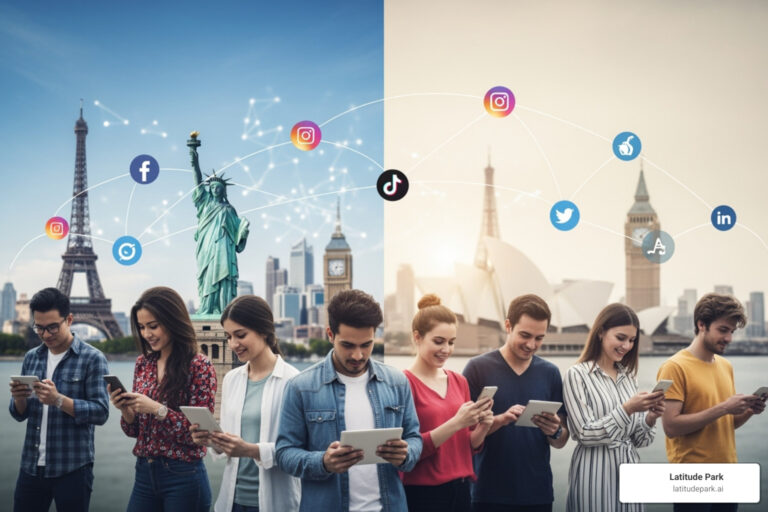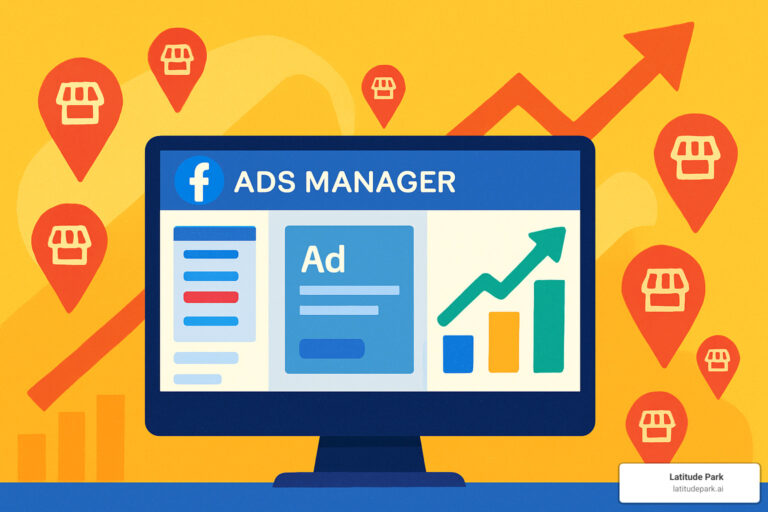As we make it through 2023, the world of digital marketing continues to evolve at a rapid pace, presenting both new opportunities and challenges for businesses. Staying ahead of the curve and understanding the top trends shaping the industry is essential for success in today’s competitive landscape. In this blog post, we will explore the key trends that are set to continue to dominate the realm of digital marketing in 2023.
From the rise of voice search and the increasing influence of artificial intelligence (AI) and machine learning to the continued dominance of video marketing and the evolution of influencer strategies, these trends are reshaping the way businesses engage with their target audience. Additionally, personalization at scale, data privacy, and the expanding realm of social commerce are transforming the digital marketing landscape.
By embracing these trends and understanding their implications, businesses can position themselves to effectively reach their target audience, drive conversions, and achieve their marketing goals in the dynamic digital landscape of 2023 and beyond. Now, let’s delve into each of these trends in detail and explore how they will impact the future of digital marketing.
Voice Search Optimization
Voice search has witnessed an exponential rise in popularity over the past few years, thanks to the proliferation of smart speakers, voice assistants like Siri and Alexa, and voice-activated mobile devices. As 2023 continues, voice search optimization has become an integral part of digital marketing strategies.
The way people search using voice commands differs from traditional text-based searches. Voice queries tend to be more conversational and longer, often resembling natural language patterns. To effectively optimize for voice search, businesses need to understand these nuances and adapt their strategies accordingly.
One essential aspect of voice search optimization is focusing on featured snippets. Featured snippets are concise, direct answers to specific queries and often appear at the top of search engine results pages (SERPs). By providing well-structured content that answers commonly asked questions concisely, businesses can increase their chances of being featured as a voice search result.
Another crucial factor in voice search optimization is the use of long-tail keywords. Long-tail keywords are specific phrases that users are likely to speak when making voice searches. Unlike text-based searches that often comprise a few short keywords, voice searches tend to be more descriptive and question-oriented. Incorporating long-tail keywords into content can improve its relevance and visibility for voice searches.
Additionally, optimizing for local search is crucial for voice search success. Many voice searches are location-specific, with users seeking nearby businesses, services, or recommendations. Businesses should ensure their online profiles, such as Google My Business, are up-to-date with accurate contact information, business hours, and customer reviews.
Lastly, creating FAQ-style content can significantly enhance voice search optimization. Anticipating and answering common questions related to your industry or products/services in a conversational manner can increase the likelihood of appearing as a voice search result.
Artificial Intelligence (AI) and Machine Learning
Artificial Intelligence (AI) and Machine Learning (ML) have become game-changers in the field of digital marketing, revolutionizing how businesses engage with customers and optimize their marketing strategies. As we head towards 2024, AI and ML continue to shape the future of digital marketing, offering immense opportunities for businesses to enhance customer experiences and drive targeted marketing campaigns.
One of the key areas where AI and ML are making significant contributions is in customer segmentation and personalization. By analyzing vast amounts of customer data, AI-powered algorithms can identify patterns, behaviors, and preferences, enabling businesses to segment their audience more effectively. This enables businesses to deliver highly personalized content, recommendations, and offers tailored to individual customer needs, increasing engagement and conversions.
Moreover, AI-driven chatbots and virtual assistants have become invaluable tools for businesses. These intelligent bots can provide instant customer support, answer queries, and guide users through the buying process, enhancing customer satisfaction and improving response times. Additionally, chatbots can collect valuable customer data and insights, enabling businesses to further refine their marketing strategies.
Predictive analytics is another area where AI and ML are transforming digital marketing. By analyzing historical data and identifying trends, AI algorithms can predict customer behavior and preferences. This empowers businesses to anticipate customer needs, optimize pricing strategies, and personalize product recommendations, leading to higher customer satisfaction and increased sales.
AI and ML are also revolutionizing content creation and curation. Natural Language Processing (NLP) algorithms can generate compelling and relevant content, reducing the time and effort required to produce engaging materials. Additionally, AI-powered content curation systems can analyze user preferences and behavior to curate personalized content recommendations, enhancing user experiences and fostering brand loyalty.
Fraud detection and cybersecurity are critical aspects of digital marketing, and AI plays a pivotal role in mitigating risks. AI algorithms can analyze patterns and detect anomalies in real-time, helping businesses identify and prevent fraudulent activities. This ensures a secure and trustworthy environment for customers, boosting brand reputation and customer trust.
Video Marketing Dominance
Video marketing has been on a steady rise in recent years, and its dominance is set to continue throughout 2023 as a powerful tool for businesses to engage with their audience and convey their brand messages effectively. In today’s fast-paced digital landscape, video content captures attention, drives engagement, and leaves a lasting impact on viewers.
Short-form videos, such as those found on platforms like TikTok, Instagram Reels, and Snapchat Spotlight, have skyrocketed in popularity. These bite-sized videos provide businesses with an opportunity to deliver engaging and easily consumable content that resonates with their target audience. Short-form videos are particularly effective in capturing the attention of younger demographics and can be leveraged for brand awareness campaigns, product demonstrations, behind-the-scenes glimpses, and user-generated content initiatives.
Live streaming is another facet of video marketing that continues to gain traction. Platforms like Facebook Live, YouTube Live, and Twitch enable businesses to connect with their audience in real-time, fostering a sense of authenticity and interactivity. Live streaming is ideal for hosting virtual events, webinars, product launches, Q&A sessions, and behind-the-scenes tours. By incorporating live chat and interactive features, businesses can actively engage with viewers, answer their questions, and build stronger relationships.
Interactive video content is also poised to keep making waves in 2023. Interactive videos allow viewers to actively participate and engage with the content, providing a personalized and immersive experience. Features like clickable hotspots, branching narratives, quizzes, and polls make the viewing experience more interactive, capturing attention and driving engagement. Interactive videos are excellent for product demos, tutorials, interactive storytelling, and personalized product recommendations.
Furthermore, video advertising across platforms like YouTube, social media networks, and OTT (over-the-top) platforms will continue to play a vital role in digital marketing strategies. Businesses can leverage targeted video ads to reach specific demographics, retarget website visitors, and drive conversions. With advanced targeting options, businesses can ensure their video ads are shown to the right audience, maximizing their advertising investments.
Influencer Marketing Evolution
Influencer marketing has become a staple in many digital marketing strategies, but in 2023 and moving forward, we can expect to see significant evolution in how businesses approach and leverage influencer partnerships. While macro-influencers with massive followings have been popular in the past, the focus is shifting toward micro-influencers and building long-term, authentic relationships.
Micro-influencers, who have smaller but highly engaged audiences, are gaining traction in the influencer marketing landscape. These individuals often specialize in niche areas and have a dedicated following that trusts their opinions and recommendations. Collaborating with micro-influencers allows businesses to tap into their authenticity and expertise, reaching a more targeted and receptive audience. In 2023, businesses will prioritize building long-term relationships with micro-influencers to foster genuine connections and drive organic engagement.
Measuring the effectiveness of influencer marketing beyond vanity metrics will be a key trend in 2023. While follower counts and likes are important, businesses are seeking deeper insights into the impact of influencer campaigns. Metrics like engagement rates, conversions, and brand sentiment will be given more weight. By tracking these metrics, businesses can assess the true ROI of their influencer partnerships and make informed decisions about future collaborations.
Additionally, businesses will focus on transparency and authenticity in influencer marketing. Influencers will be expected to clearly disclose sponsored content and partnerships to maintain trust with their audience. Brands will also prioritize working with influencers whose values align with their own, ensuring a genuine connection between the influencer, the brand, and the audience. Authenticity and transparency are crucial for successful influencer marketing campaigns.
Furthermore, as influencer marketing evolves, businesses will explore innovative collaboration formats. Beyond traditional sponsored posts, businesses may engage influencers in co-creating content, hosting virtual events, conducting product reviews, or participating in brand ambassador programs. These diverse collaboration formats allow for more authentic storytelling and deeper engagement with the audience.
Personalization at Scale
Personalization has been a significant trend in digital marketing, and in 2023, businesses strive to achieve personalization at scale. With the abundance of data available and advancements in technology, businesses can deliver highly targeted and relevant content, offers, and recommendations to individual customers across multiple touchpoints.
At the heart of personalization at scale is the effective use of customer data. By capturing and analyzing data from various sources such as website interactions, purchase history, social media engagement, and demographic information, businesses can gain valuable insights into customer preferences and behaviors. Utilizing artificial intelligence (AI) and machine learning algorithms, businesses can automate the process of segmenting customers and tailoring content accordingly.
Dynamic content creation will play a crucial role in personalization at scale. Instead of delivering static content to all users, businesses can dynamically generate content based on individual preferences, browsing behavior, and purchase history. This allows for a personalized and relevant experience for each customer, enhancing engagement and driving conversions.
Email marketing is one area where personalization at scale can make a significant impact. By utilizing data such as past purchases, browsing history, and demographic information, businesses can send targeted and personalized email campaigns. From personalized subject lines and tailored product recommendations to customized offers and exclusive content, personalized emails can significantly improve open rates, click-through rates, and overall email marketing effectiveness.
Website personalization is another critical aspect of personalization at scale. By leveraging user data and behavior tracking, businesses can create dynamic website experiences. This includes displaying personalized product recommendations, showing relevant content based on browsing history, and customizing landing pages based on customer segments. Website personalization enhances user experiences, reduces bounce rates, and increases conversions.
Additionally, personalization at scale extends to personalized advertising. By leveraging user data and advanced targeting capabilities, businesses can deliver personalized ads to specific customer segments. This allows for more relevant and engaging advertising experiences, resulting in higher click-through rates and better ROI on ad spend.
Privacy and Data Protection
In the evolving landscape of digital marketing, privacy and data protection have become critical concerns for businesses and consumers alike. As data breaches and privacy scandals continue to make headlines, customers are increasingly demanding transparency, control, and safeguarding of their personal information. In 2023, businesses need to prioritize privacy and data protection to build trust, comply with regulations, and maintain strong customer relationships.
First and foremost, businesses should adhere to privacy regulations, such as the General Data Protection Regulation (GDPR) and the California Consumer Privacy Act (CCPA). These regulations outline the rights and protections for individuals’ personal data, including explicit consent for data collection and the right to access and delete their information. By ensuring compliance, businesses can demonstrate their commitment to data privacy and avoid potential legal consequences.
Implementing robust data protection measures is crucial to safeguarding customer data. This includes encrypting sensitive information, regularly updating security protocols, and restricting access to authorized personnel. Additionally, businesses should invest in secure data storage and implement proper protocols for data sharing and transfers to mitigate the risk of data breaches.
Transparency in data collection and usage is key to building trust with customers. Businesses should clearly communicate their data collection practices, including the types of data collected, how it is used, and with whom it is shared. Providing individuals with opt-in/opt-out mechanisms and clear privacy policies gives them control over their personal information and fosters a sense of transparency and trust.
Anonymization and aggregation of data can also be employed to strike a balance between personalization and privacy. By removing personally identifiable information from datasets and aggregating data at a broader level, businesses can still derive insights while preserving individual privacy.
Lastly, businesses should prioritize ethical data practices by ensuring responsible data handling, avoiding intrusive data collection methods, and respecting customer preferences regarding data usage and communication.
Social Commerce Expansion
Social commerce, the integration of e-commerce and social media, is experiencing significant expansion in 2023. With billions of users actively engaging on social media platforms, businesses are capitalizing on this trend to reach and convert customers in a seamless and convenient manner.
Social media platforms are increasingly incorporating e-commerce features, allowing businesses to showcase products and enable direct purchasing within the social media ecosystem. The integration of shopping tags, product catalogs, and in-app checkout options streamlines the customer journey and reduces friction, making it easier for users to discover and purchase products without leaving the platform.
In addition to the convenience factor, social commerce leverages the power of social proof and user-generated content. Social media users often share their experiences, reviews, and product recommendations, which can influence the purchase decisions of their peers. Businesses can harness this user-generated content to build trust and credibility, ultimately driving conversions.
Live shopping is emerging as a popular aspect of social commerce. Platforms such as Facebook Live, Instagram Live, and TikTok allow businesses to host live video sessions where they showcase products, provide demonstrations, and engage with their audience in real-time. Viewers can ask questions, make purchases, and receive exclusive deals during the live stream, creating an interactive and engaging shopping experience.
Furthermore, social media platforms are implementing advanced targeting capabilities, enabling businesses to deliver personalized product recommendations and ads based on user interests, behavior, and demographic data. This targeted approach enhances the relevance and effectiveness of social commerce campaigns, increasing the likelihood of conversions.
As social commerce continues to expand, businesses should optimize their social media presence and leverage these platforms as an integral part of their e-commerce strategy. By providing a seamless shopping experience, utilizing user-generated content, incorporating live shopping events, and leveraging advanced targeting capabilities, businesses can tap into the vast potential of social commerce to drive sales and engage with their audience in new and innovative ways.
Take Action
The top trends in digital marketing for 2023 present exciting opportunities for businesses to elevate their strategies and drive impactful results. From voice search optimization and the integration of AI and machine learning to video marketing dominance, influencer marketing evolution, personalization at scale, privacy and data protection, and social commerce expansion, businesses have a wide array of tools and tactics at their disposal.
To harness the power of these trends and achieve digital marketing success, it’s essential to partner with a reliable and experienced agency. Latitude Park is here to help. Our team of experts is well-versed in the latest trends and best practices in digital marketing. Whether you need assistance with search engine optimization, social media advertising, content creation, or any other aspect of your digital marketing strategy, we have the knowledge and expertise to drive your business forward.
Don’t miss out on the opportunities presented by the evolving digital landscape. Contact Latitude Park today to discuss your digital marketing needs and take your business to new heights. Let us be your trusted partner in navigating the ever-changing world of digital marketing.









